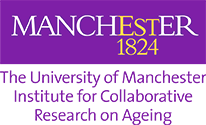
Manchester Urban Ageing Research Group (MUARG)
Understanding the relationship between population ageing and urban change has become a major issue for public policy, and an increasingly important area for interdisciplinary research.
An emerging theme is the creation of 'age-friendly cities and communities'. This approach, initiated by the World Health Organization, reflects the need to develop supportive urban communities for older people. Key characteristics of an age-friendly community include the built environment, social inclusion and service provision.
Our research supports the promotion of age-friendly environments at global, EU, national and local level. MUARG has a particular focus on understanding issues relating to social exclusion and pressures facing older people in areas subject to economic decline.
Aims and objectives
- To undertake interdisciplinary research on urban ageing
- To develop international collaboration in research on ageing and urbanisation
- To promote new methodologies and knowledge exchange activities which involve older people as co-investigators
- To develop an understanding of the role of arts and culture in research on urban ageing
- To secure internal and external funds to support work on urban ageing
Research interests
Group members’ research spans inequalities in later life, social exclusion and poverty, rural/urban boundaries, ageing and mobility, ethnicity, migration and healthcare systems, housing design and climate change, comparative studies and developing age-friendly cities. We work closely with partners in government and third sector organisations.
Selected grants and projects
Buff el, T. Urban Ageing and Social Exclusion. Funding: UK ESRC Phillipson, C. and Goulding, A. Tackling Social Isolation in Urban Environments. Funding: Big Lottery UK
Hou, B. with Nazroo, J., Banks, J. and Marshall, A. The impact of migration and urbanisation on the health and well-being of older people in China: analysis of the CHARLS study.
Remillard-Boilard, S. Age-Friendly Cities: A cross-national perspective. Funding: Canadian Social Science Research Council, the University of Manchester and Manchester City Council
Principal investigator
Dr Tine Buffel, MICRA, School of Social Sciences
